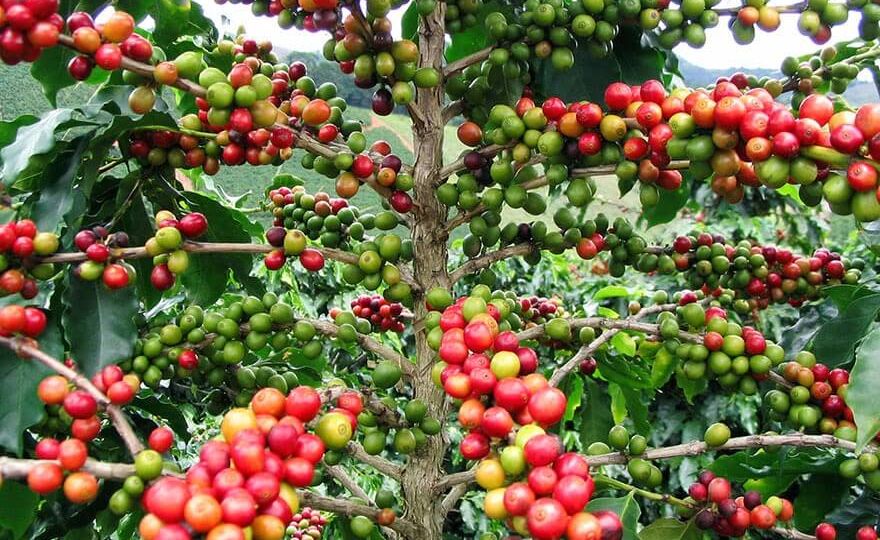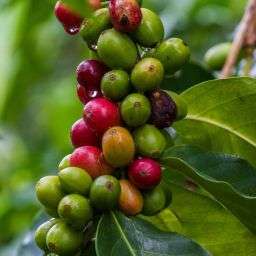
Organic coffee farming is a sustainable agriculture method that avoids the use of synthetic pesticides and fertilizers, focusing instead on natural processes and materials to enrich soil and control pests. This approach not only preserves the earth’s ecosystems but also produces coffee with fewer chemicals, appealing to health-conscious consumers and enhancing the beans’ natural flavors.
The global demand for organic coffee is on the rise, driven by increasing awareness of environmental issues and a growing preference for natural products. Consumers are willing to pay a premium for organic coffee, recognizing its benefits for the planet and its inhabitants. This trend reflects a broader shift toward organic and sustainable consumption, influencing the coffee industry’s direction.
Key Takeaways
- Organic coffee farming practices include crop rotation, composting, and biological pest control, contributing to soil health, reduced pollution, and increased biodiversity. These methods not only ensure the sustainability of coffee farms but also enhance the quality of the coffee produced.
- The environmental impact of organic coffee farming is significantly positive, reducing the carbon footprint and preserving natural habitats. By avoiding harmful chemicals, organic farming protects water sources and wildlife, contributing to the overall health of the ecosystem.
- Organic coffee farmers face challenges such as higher labor costs, the need for specialized knowledge, and the rigorous certification process. Despite these obstacles, the long-term benefits and growing market demand make organic farming a viable and rewarding approach for coffee producers.
- The future outlook for organic coffee farming is promising, with market analysts predicting continued growth. As consumers become more environmentally conscious and demand transparency and sustainability, organic coffee is set to play an increasingly important role in the global coffee industry.
The Unique Conditions Required for Coffee Farming
Organic coffee thrives under specific environmental conditions, requiring a delicate balance of climate, soil, and elevation. Ideal coffee farming regions are often found in the “coffee belt,” which lies between the Tropics of Cancer and Capricorn. These areas provide the necessary hot and sometimes humid climates essential for coffee cultivation.
Elevation plays a crucial role in coffee farming, influencing the beans’ flavor and quality. Higher altitudes offer cooler temperatures, which slow the bean’s maturation process, allowing more time for the development of complex sugars and resulting in a denser, more flavorful coffee. For instance, Brazilian coffee farms typically sit around 1,900 feet above sea level, while Indonesian farms, known for producing high-quality beans like Sumatra and Toraja, can reach up to 6,000 feet.
The Life Cycle of a Coffee Plant and the Farming Process
The life cycle of a coffee plant on an organic farm is a testament to natural growth and sustainability. From planting to bearing fruit, the coffee plant’s development is nurtured with organic practices, avoiding synthetic chemicals. Initially, coffee seeds are planted in nurseries and carefully tended until they are strong enough to be transplanted into the farm.
Organic coffee plants require several years to mature and start producing fruit, known as coffee cherries. During this growth period, farmers employ sustainable practices such as using organic compost for fertilization and practicing intercropping to enhance soil health and biodiversity. These methods ensure that the plants grow in a balanced ecosystem, contributing to the beans’ quality and taste.
Harvesting and Processing Methods in Organic Coffee Farming
Harvesting organic coffee is labor-intensive, often done by hand to ensure that only ripe cherries are picked. This selective picking is crucial for quality, as it ensures a consistent flavor profile. After harvesting, organic coffee undergoes a meticulous processing method to prepare the beans for roasting.
The processing of organic coffee can include natural (dry), washed, or honey methods, each impacting the coffee’s final taste. In the dry process, cherries are sun-dried, with the beans later extracted, while the washed process involves removing the cherry’s pulp before drying the beans. Organic standards dictate that these processes avoid chemical use, ensuring the beans’ organic integrity.
Economic and Operational Hurdles for Farmers
Transitioning to organic coffee farming presents economic and operational challenges, particularly for smallholder farmers. The initial investment is substantial, covering costs for organic certification, labor, and potentially reduced yields during the transition period. Organic farming requires more manual labor for tasks such as weeding and pest control, which are not treated with synthetic chemicals.
Moreover, the market for organic coffee, while growing, still represents a niche segment. Farmers may struggle to find buyers willing to pay a premium for organic beans, essential for offsetting the higher production costs. The insights from Intelligence Coffee highlight these hurdles, emphasizing the need for a supportive network and fair trade practices to ensure organic farmers can sustain their operations and benefit from their commitment to organic practices.
Certification and Regulation in Organic Coffee Farming
Certification is a crucial aspect of organic coffee farming, providing assurance to consumers about the product’s authenticity. However, obtaining and maintaining organic certification is a rigorous and sometimes costly process. The SOE (Strengthening Organic Enforcement) Final Rule issued by the U.S. National Organic Program has introduced stricter regulations to enhance the integrity of organic products.
This rule mandates increased oversight and enforcement, affecting the entire supply chain from production to sale. It includes new certification requirements for previously exempted entities, like certain brokers and importers, and mandates unannounced inspections to ensure compliance. These regulations aim to strengthen the organic label’s credibility but also add layers of complexity for farmers and businesses in the organic coffee sector.
FAQs
What Defines an Organic Coffee Farm?
An organic coffee farm is defined by its adherence to agricultural practices that avoid synthetic pesticides and fertilizers. It focuses on using natural methods to maintain soil health, control pests, and grow coffee, ensuring sustainability and environmental protection.
Why is Organic Coffee Often More Expensive?
Organic coffee is often more expensive due to the higher costs of organic farming practices, including labor-intensive methods for pest control and weeding, and the rigorous certification process. These factors contribute to the premium price of organic coffee.
How Does Organic Farming Benefit the Environment?
Organic farming benefits the environment by reducing chemical runoff, preserving soil health, enhancing biodiversity, and minimizing the carbon footprint. These practices ensure a healthier ecosystem, promoting sustainability and long-term ecological balance.
What are the Challenges in Transitioning to Organic Coffee Farming?
Transitioning to organic coffee farming presents challenges like the initial cost of certification, potential yield reductions during the transition period, and the need for new farming techniques. Farmers must adapt to more labor-intensive practices and find markets for their organic products.
Final Thoughts
Supporting organic coffee farms is crucial for promoting sustainable agriculture, enhancing environmental health, and providing consumers with high-quality, chemical-free coffee. By choosing organic, consumers contribute to a market that values ecological balance, farmer welfare, and superior coffee quality.
The potential impact of organic farming on the future of coffee is significant, offering a pathway to more sustainable production, reducing environmental degradation, and ensuring the longevity of coffee farming. As consumer awareness grows, organic coffee has the potential to shape a more responsible and sustainable coffee industry.








